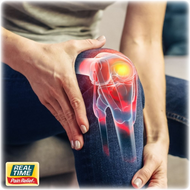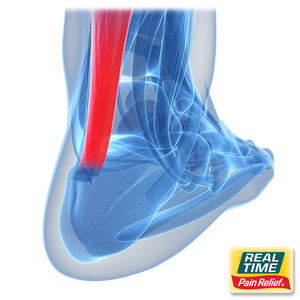Reduce Arthritis Pain Quickly - 7 Tips
7th Apr 2021
Are you tired of nagging or debilitating arthritis pain? You are not alone. Here are 7 Tips to help you reduce the pain.
Arthritis is not just one disease. Instead, it is the term given to describe over 100 types of diseases that cause joint inflammation. According to the Arthritis Foundation, over 50 million adults in the United States and 300,000 children have some form of arthritis. Common types of arthritis include osteoarthritis, rheumatoid arthritis, and infectious arthritis.
Symptoms of arthritis can vary, but often include the following:
- Joint pain
- Stiffness
- Decreased range of motion
- Redness of the skin
- Fatigue
Arthritis pain can interfere with everyday activities, such as work, recreation, and family responsibilities. Treatment for arthritis may vary depending on the form of disease you have and may include corticosteroids medications, pain medication, and joint replacement surgery.
Fortunately, there are also some natural things that you can do to ease discomfort and improve your quality of life. Consider the following suggestions:
Maintain a Healthy Weight:
Maintaining a healthy weight is important for everyone. But if you have arthritis, watching your weight is even more essential. Carrying excess weight places more stress on your joints, especially your knees and hips. For example, according to the Arthritis Foundation, for every pound of excess weight you carry, it exerts an extra four pounds of force on your knees. Even losing a small amount of weight may decrease symptoms of osteoarthritis. If you are overweight, talk with your healthcare provider about a sensible plan to slim down.
Get Regular Exercise:
Exercise may be the last thing on your mind when you have pain due to arthritis. But staying active and getting regular exercise may actually ease discomfort. Exercise can help prevent stiffness and may improve range of motion, which can become limited with arthritis.
Exercise can also improve the strength of the muscles around your joints, which may improve function. The key is doing the right type of exercise. It’s vital to do exercises that improve strength, endurance, and flexibility without damaging the joints. Depending on which joints are affected, you should avoid high impact exercises, such as running and jumping. Instead, stick to low impact exercise including swimming, walking, and biking for about 30 minutes on most days of the week. Add in two days of strength training and stretching for a well-rounded exercise program.
Apply Topical Pain Relief:
Topical pain relievers can be a great way to treat arthritis pain. Topical medications provide relief without causing the systemic side effects of oral drugs. Topical pain relievers may be in the form of a spray, gel, and cream and are applied directly to the skin. Many topical pain relievers work to provide relief in the exact area you are experiencing pain. Look for a topical reliever that contains ingredients like menthol, arnica, or trolamine salicylate, which may help decrease the discomfort.
Try a TENS Unit:
TENS is transcutaneous electrical nerve stimulation. It involves using a small device that transmits electrical current to the nerves through electrodes placed on the skin. The TENS unit is thought to stimulate the nerve endings and cut out the pain signals sent to the brain. According to the Arthritis Foundation, there is some evidence that using a TENS unit may decrease pain associated with osteoarthritis. Although additional research is needed to conclude TENS is effective in treating arthritis, it may be helpful for some people.
Apply Heat or Cold:
Applying cold to an arthritic joint can decrease inflammation and pain. Place an ice pack or cold compress on the joint for about 15 to 20 minutes about three times a day. Heat may also be helpful for aching joints. Heat may relax muscles and decrease pain. Use a hot water bottle or microwavable hot pack for about 20 minutes a few times a day. You can also soak in a hot tub; maybe even add a fizzy pain relief bath bomb. When it comes to applying heat or cold, use whichever provides more relief for your condition.
Get a Massage:
Massage is often helpful in treating some types of pain including discomfort due to arthritis. Massage may weaken proteins called inflammatory cytokines, which are associated with pain. Plus, it may also decrease stress, which is a bonus since stress is known to increase pain levels.
Bonus Tip: Take your favorite topical pain relief lotion along and ask your massage therapist to use it instead of their basic oil or lotion during the massage.
Use Adaptive Aids and Braces:
Although it does not treat arthritis pain directly, using braces and adaptive devices may make it easier to cope with the condition. Consider using adaptive aids as needed, such as electric can and jar openers, special grip pens and reaching devices, which may make doing everyday tasks less painful. Braces, joint supports, and splints may also be helpful for some people.
The good news is you don’t have to just live with arthritis pain. It may take a combination of the suggestions above, as well as a little trial and error to find treatments that work best for you.
Published by Real Time Pain Relief
FOR OVER 20 YEARS, FAMILIES ACROSS THE U.S. HAVE TURNED TO REAL TIME’S LOTIONS AND CREAMS FOR PAIN RELIEF YOU CAN TRUST®. FROM LIFESTYLE ESSENTIALS, THROUGH OUR NUJUVENA LINE, TO PAIN RELIEF FORMULAS, REAL TIME HAS YOU COVERED.
Sources
- https://www.arthritis.org/living-with-arthritis/treatments/natural/other-therapies/electrical-stimulation-knee.php
- https://my.clevelandclinic.org/health/drugs/13077-nonsteroidal-anti-inflammatory-drugs-for-arthritis
- https://www.arthritis.org/about-arthritis/understanding-arthritis/what-is-arthritis.php
- https://www.mayoclinic.org/diseases-conditions/arthritis/symptoms-causes/syc-20350772
- https://www.mayoclinic.org/diseases-conditions/arthritis/in-depth/arthritis/art-20047971
- https://www.arthritis.org/living-with-arthritis/treatments/natural/other-therapies/heat-cold-pain-relief.php





